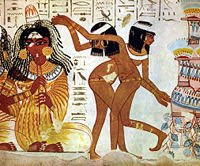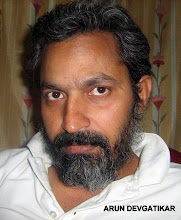Unity on Uncommonness
-Sheomangal Siddhantkar
The object which is identified intellectually may not necessarily be the object in reality. Therefore, in the very outset, it may intellectually be opined that there is no real communist party in India, and also, there is no communist centre as has been referred to by some groups of communists. It is needless to state and it is not unknown that in India there are three parliamentary communist parties; two of which have such a large number of membership that can excel any of the communist parties of the world, if I don’t count the CPC and the Communist Party of Russia. The Communist Party of India, the mother of all the communist parties and groups, which are practising in our country, cannot be called unreal in their totality. They are the communist parties operating in the vast areas of the country and there are also other communist parties which are practising and adopting legal and extra-legal forms of struggle. It includes the CPI(Maoist).
It cannot be said that they are not real communist parties but they, progressionally, do exist. Marxist analysis can methodically indentify the inferior quality and superior quality of the object which exists and try to change it scientifically through the polemics and practice on the basis of dialectical and historical materialism, find out the intercourse of the opposites in the course of production and reproduction adopting some scientific change in the negation of the negation, finite and infinite, lower and higher, old and the new. When the communist party of India was formed in India and prior to it in exile, it had material base and had organizational world communist centre too, which continued till the collapse of the USSR. It was very much tied with the CPSU in the main. The communist party was splitted and CPIM was established, thereafter in 1967 Naxalbari “spring thunder” occurred and in 1969 CPIML was formed. All these formations are real formations which we belong to. Therefore imagination of a real communist party intellectually, can not hold good, unless we analyse the whole development in a concrete and scientific way. This scenario has been analysed in various ways to the extent of questioning the very foundation of Marxism. Marxism today cannot be that of Marx`s time and Marxism-Leninism of today can not be the one of Lenin`s and Stalin`s time, as also it cannot be held that the Mao-Tse Tung Thought is Marxism – Leninism of today. All the aberrations in these foundations can be analysed for change but they are not unreal in their totality. If all are not real we land ourselves in some imaginary paragon which is idealistic in various ways. Traditionally speaking, all these formations are termed revisionist till date and we are supposed to fight them within and without for long. Even if we hold that there is no real communist party in India, we have no problems in marching together.
As far as the question of crisis is concern, it dates back to 1848 onwards. It is a known fact that how Proudhon and Duhring tried to create crisis in the communist camp in 1860s and 1870s despite vigorous struggles against them by Marx and Engels; that it is also not an unknown fact, how Bakunin, who proclaimed himself to be a disciple of Marx termed him Jewist and dictator when his desires were not fulfilled in the first International. Bakunin was opportunist, idealist and what not. He can not be compared with Bebel and Rosa Luxemburg, who were thoroughly communists, despite differences with Marx. In 1890s Bernstein had also tried to create crisis and failed.
In Marx`s time workers' leaders Lassal and others of the workers’ party of Germany did not like to adhere to the Critique of the Gotha Program written by Karl Marx himself as he criticized the program ruthlessly and termed Lassal`s line as reformist and opportunist as in Lenin`s time despite Plekhanov, Lenin`s unity and struggle in the form of the dialectics of 'one step forward two step back', the question of minority and majority side of party vis-à-vis correctness and incorrectness of the tactical and strategic line.
Later on Trotsky and a host of his followers during Lenin`s own time and also in Stalin's period created crisis in the party and in the course of reconstruction of the socialist society they created crisis overtly or covertly. There is a long history of crisis till the end of the USSR. The Chinees revolution passed through less crisis than hitherto we have witnessed. The crises of the communist parties in India have been more intense than today because material positions were to be taken in to consideration during the freedom struggle and thereafter. In view of the relation of the communist party with the ruling parties had been the core of crisis before and after the Naxalbari movement which ranged from several formations such as CPI, CPIM, CPIML, CPIMaoist, to the formation of the CPIML New Proletarian, the last being in the embryonic form like the ‘Boltzmann Brain Child’.
Let a question hereby be posited. If there is no existence of the ‘real Communist Party’ and there is no ‘communist centre showing advanced ideas,’ how can there be communist revolutionaries in India? In case there are communist revolutionaries in India, where do they come from? And if they are communist revolutionaries they must be free from the ideological, theoretical and political confusions and they must be coming from the working class, proletariate, new proletariat and technical-managerial new proletarians imbued with the advanced new proletarian ideas one way or the other capable to develop a new proletarian party of today. Hence, I am not disheartened. And I know, our developing party too is not disheartened. I expect of brotherly the friends to be a little romantic to recognise ourselves as a developing party and an emerging new proletarian centre to help us march forward together.
Every where there is crisis of occurrence and the reoccurrence of precidented and unprecidented, countless and yet finite, that is why crisis were betrayed; but when crisis runs into infinity, rooted through confusion, it cannot be overcome, despite our best sincerity. That we may have and it is true that we have had. Why, therefore, do we not suggest ourselves that let us come out of infinity of confusion and chaos ourselves, 'for ourselves’? That it’s up to the whole graduation and nothing is constructed out of nothing, but something that we can have. We should come out right on to the finite to develop an all India party through all India conferences and unite on the basis of uncommonness instead of infinite search for commonness and let us contain the unity on the basis of legitimate opposition which has been in practice in the CPIML New Proletarian about which we have been presenting our viewpoint, in bilateral and multilateral meetings. We have witnessed our friends having been sincerely pleading for commonness and now we are happy to note that they are ready to broaden democracy for providing sufficient space for different ideas for which we have been committed to and have expressed a number of times saying to let democratic revolutionaries to the new proletarians be united and we do not exclude even Maoists. In this regard we have already formulated legitimate opposition as extension to democratic centralism which is scientific and dialectically correct. In this way, the question of uncommonness and that of democratic centralism can be achieved through the similarity of different words and phrases.
(This article is written by Mr. Sheomangal Siddhantkar, General Secretary of the CPIML New Proletarian.)
Sunday, 29 March 2009
Subscribe to:
Post Comments (Atom)





nice subject ,right way of saying,
ReplyDeletethanks
mayur
sarparast.blogspot.com